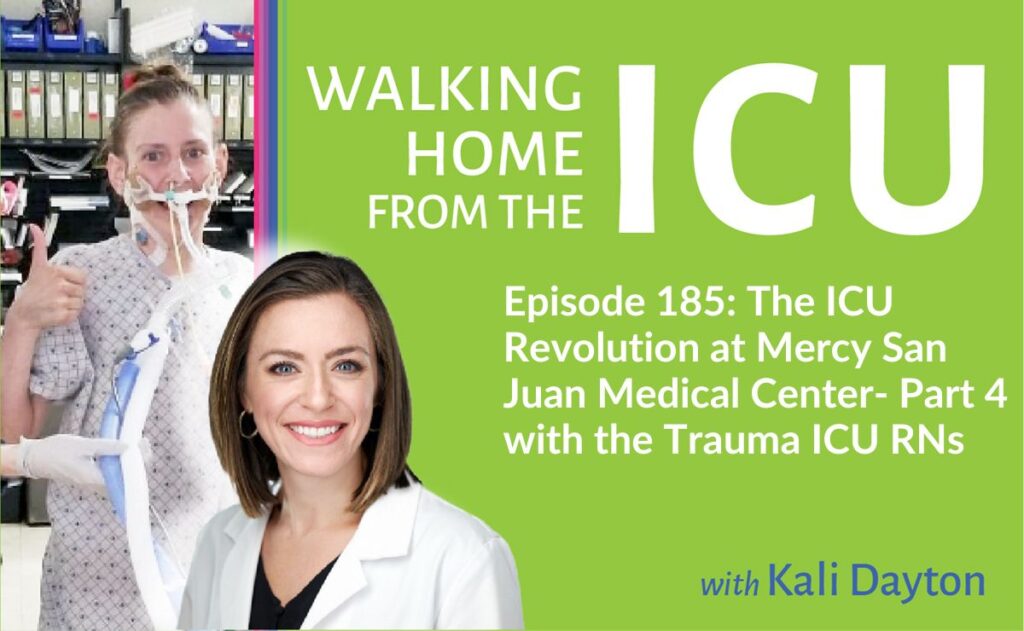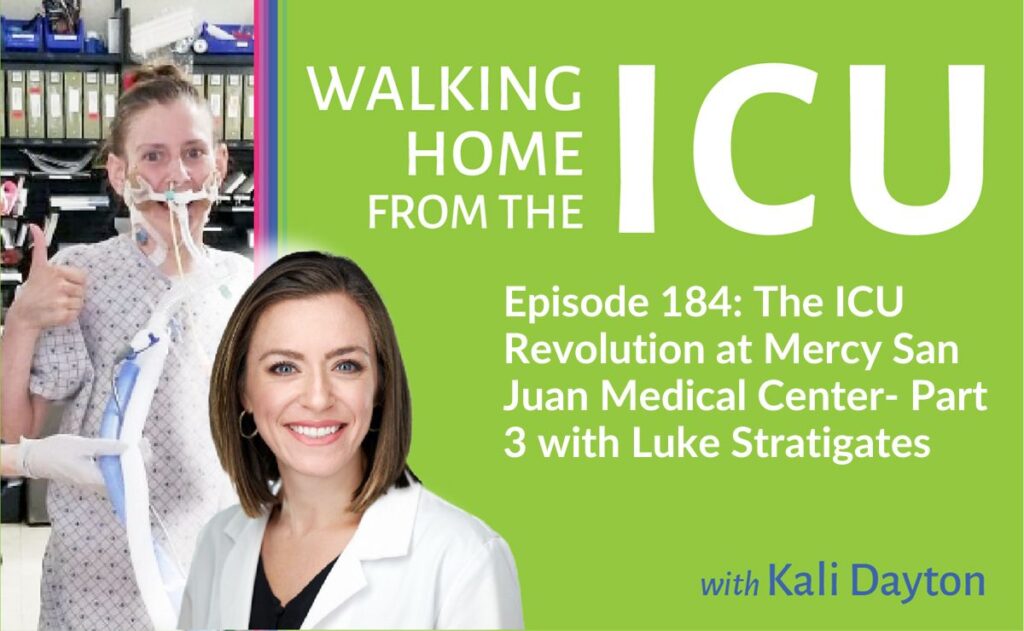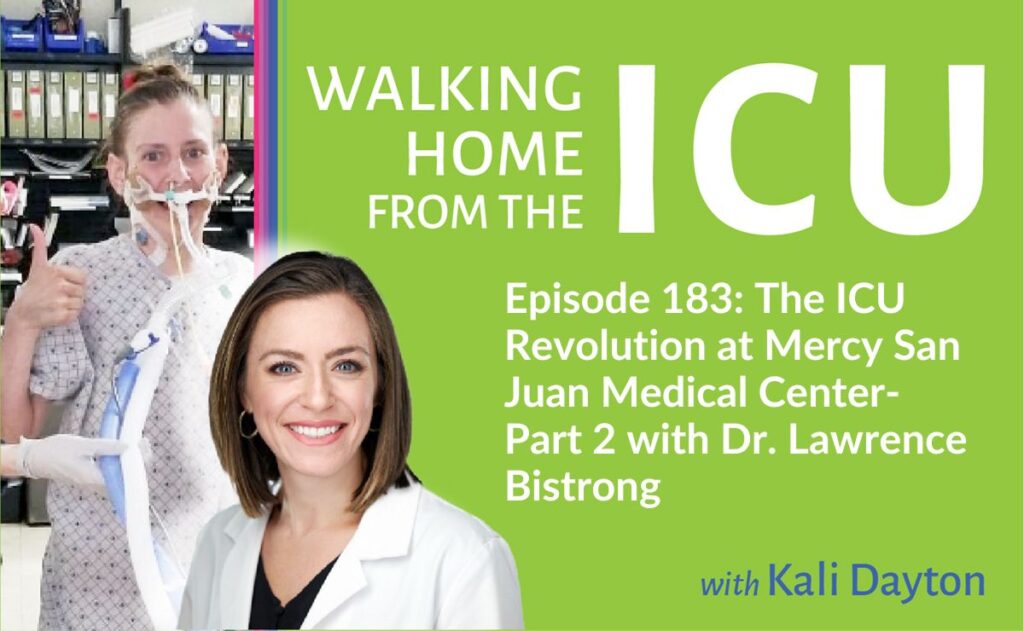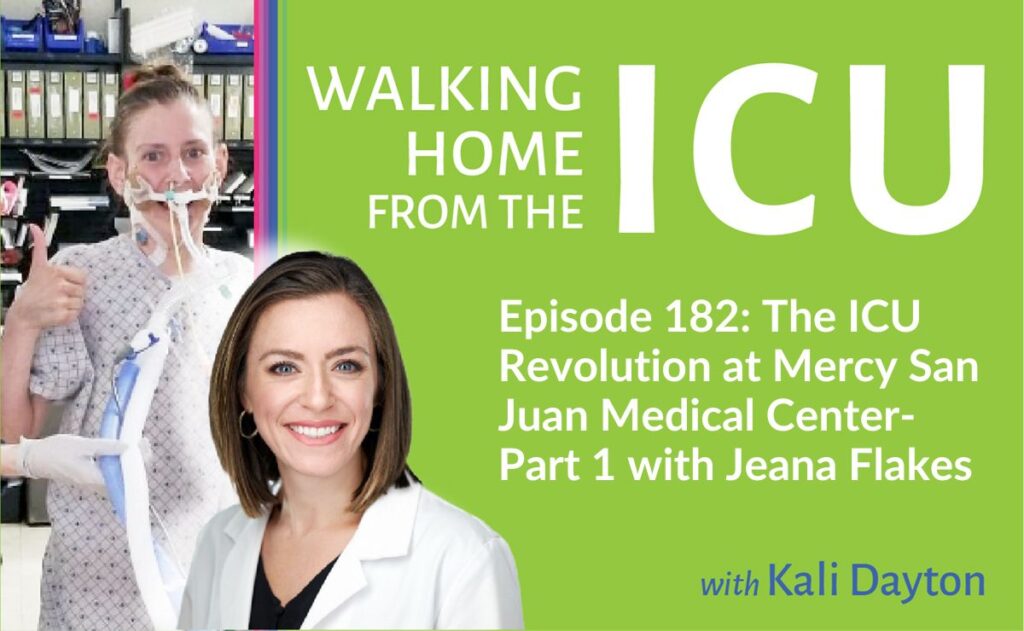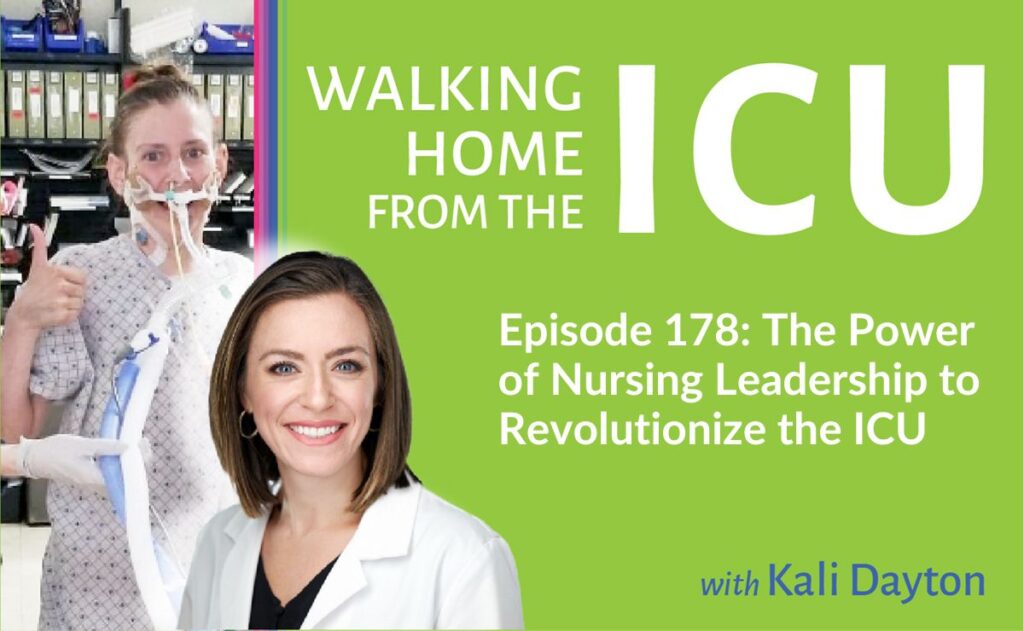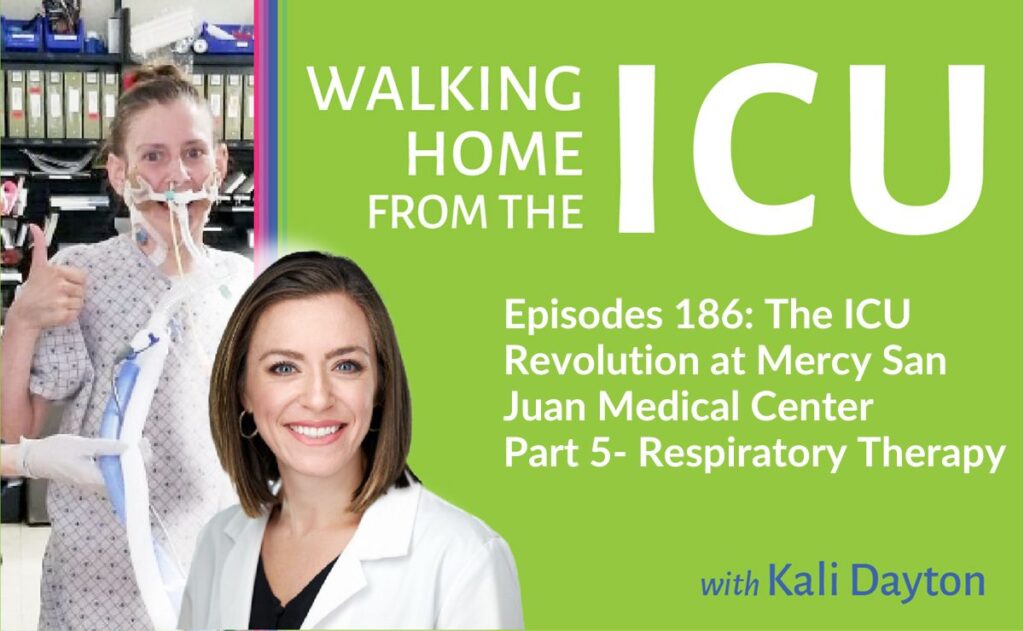
Episode 186: The ICU Revolution at Mercy San Juan Medical Center Part 5 – Respiratory Therapy
What role do respiratory therapists play in creating Awake and Walking ICUs? How did Candace Wistrich, RRT, BSRT and Nelya Kapitula, RRT, BSRT lead their respiratory therapy department to move the revolution forward? They join us now to share their team’s journey! Episode Transcription Nelya Kapitula, RRT, BSRT 0:00 Candace and Nelya, thank you so
